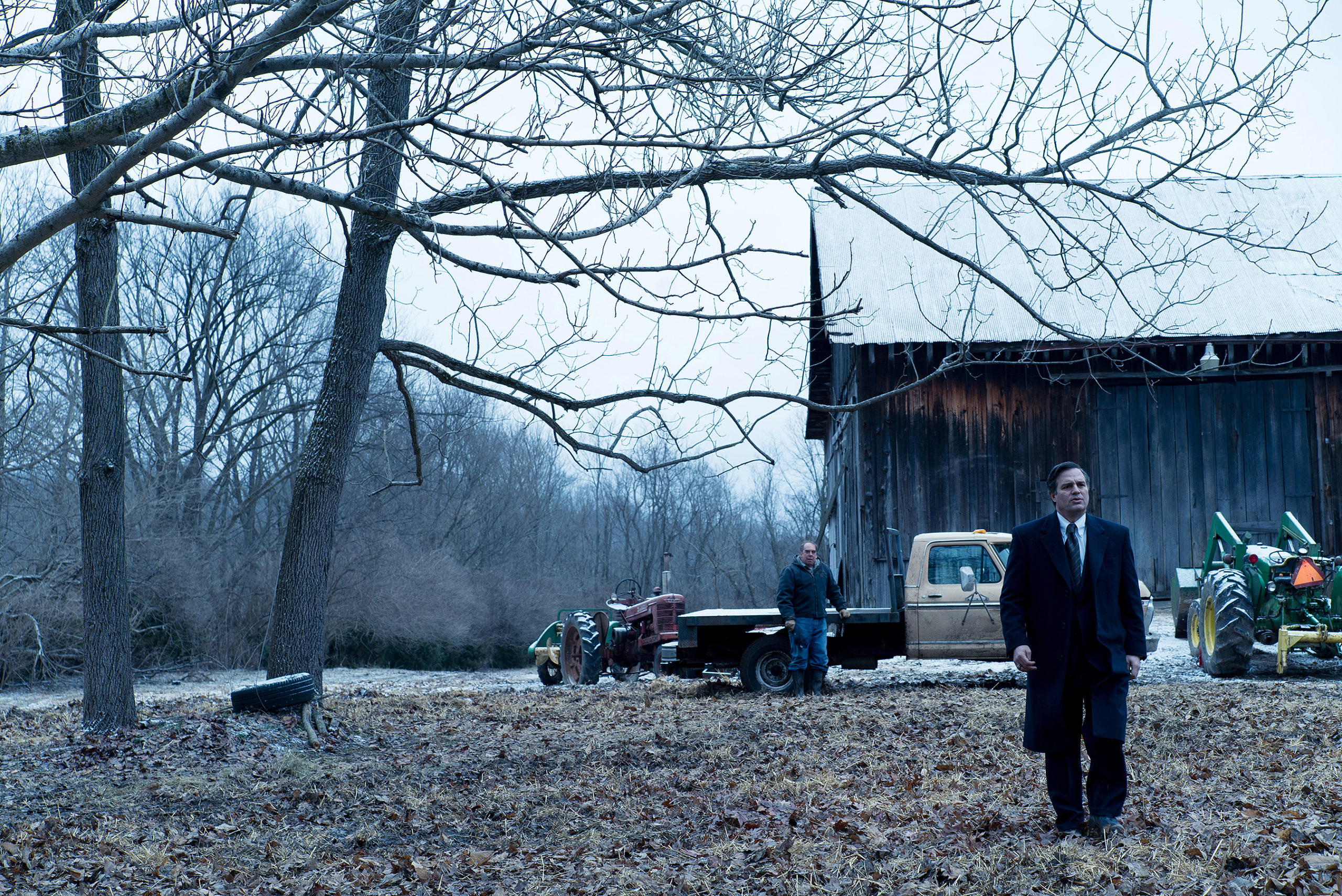An argument against government regulation often used by people who are pro corporations is that the companies self-regulate, policing themselves while the people will let them know if they go too far. But what if the company employs everyone in the town? What if they have unlimited money? What if they rewrite the laws to their own advantage? This is the situation Robert Bilott (Mark Ruffalo) finds himself in while trying to help someone in need. Dark Waters paints a heroic and bleak picture of America today, and shows how far someone has to go to get justice against nearly unlimited power.
Robert Bilott wouldn’t initially seem like a crusader in 1998. He actually worked for a law firm that works closely FOR DuPont Chemical, just becoming a partner at the firm. After a West Virginia farmer Wilbur Tennant (Bill Camp) shows Robert 190ish cows that have been killed after a DuPont plant turned up in his backyard, Robert goes to work trying to figure out what DuPont might have been doing wrong and tries to fix it before they get in trouble. However, as Robert digs deeper, he uncovers how vast DuPont’s deception is to the American public, and realizes he has to do something more than just help out one guy, potentially at the expense of his wife Sarah (Anne Hathaway) and his job.
The first half of Dark Waters is a procedural we’ve seen before: a mystery like Erin Brockovich or All the President’s Men. Todd Haynes helps keep us invested in a variety of ways. He keeps the central mystery relatively simple, having Robert track down a few strange chemistry terms, and then quickly explaining why they’re bad. There’s also setup of the stakes for the farmers and anyone living in the town: these chemicals are cancerous, and they drive animals crazy to the point they might try to kill you. And finally, we get the stakes for Robert and Sarah: Robert’s health isn’t exactly great, and his obsession with this case puts him at odds with his law firm, and keeps him away from his family a lot. Haynes does a great job quickly and simply setting up the situation Robert Bilott finds himself a part of by just looking into a farmers dead cows.
Now in previous studies of a person fighting against corporate malfeasance and greed, they either lose or win the case as the climax of the movie. Dark Waters goes a different, more realistic route. DuPont’s deception is discovered and proven with almost an hour of movie time left. The movie then turns into a study of how far the good people have to go to stop an all powerful corporation from doing something bad because the profits are still good. After Robert wins the case for his farmer, he then has to prove that this problem affects everyone. So DuPont simply prolongs that process into a several year scientific study for which Robert and his law firm foot the bill, with Robert taking pay cut after pay cut for justice. In the meantime, DuPont slows operations in the little West Virginia town, causing massive job loss and turning the people against Robert even though he’s fighting for them. Any and every procedural impasse is employed by DuPont to stop Robert from affecting DuPont’s profits because of their chemical creation. Movies like this always have our hero(es) struggle to stay in the fight; in Dark Waters’s case, that’s THE question, as DuPont shows Robert that this fight is going to take decades to be fought and won for the people affected by the corporate deception. Haynes does a great job showing how inevitably DuPont will push everyone fighting them to their personal limits because of their influence on the justice process, and we become as angry, sad, and frustrated as everyone in the movie does because a powerful company doesn’t want to follow the rules.
In movies, especially in the United States, heroes usually don a superhero cape, or a gun, or use their muscles to win a physical altercation. But those aren’t the real heroes: the ones like Robert Bilott. People like Robert sacrifice near everything to do the most terrifying thing imaginable: speak truth to power, simply because it is right. On this week of Thanksgiving I’m most thankful for people like Robert Bilott, who inspire me to be a better person even when the odds are against me.

